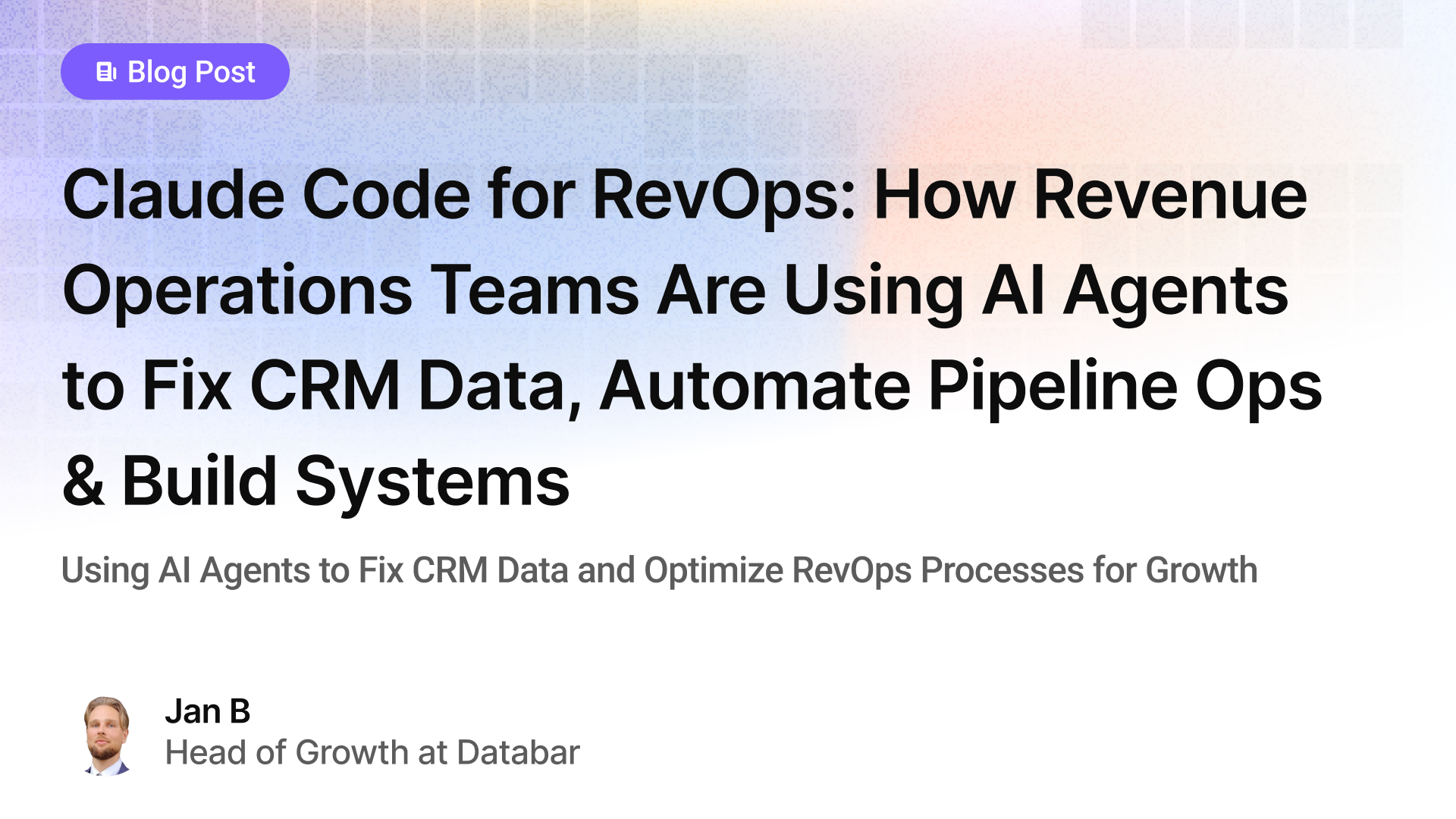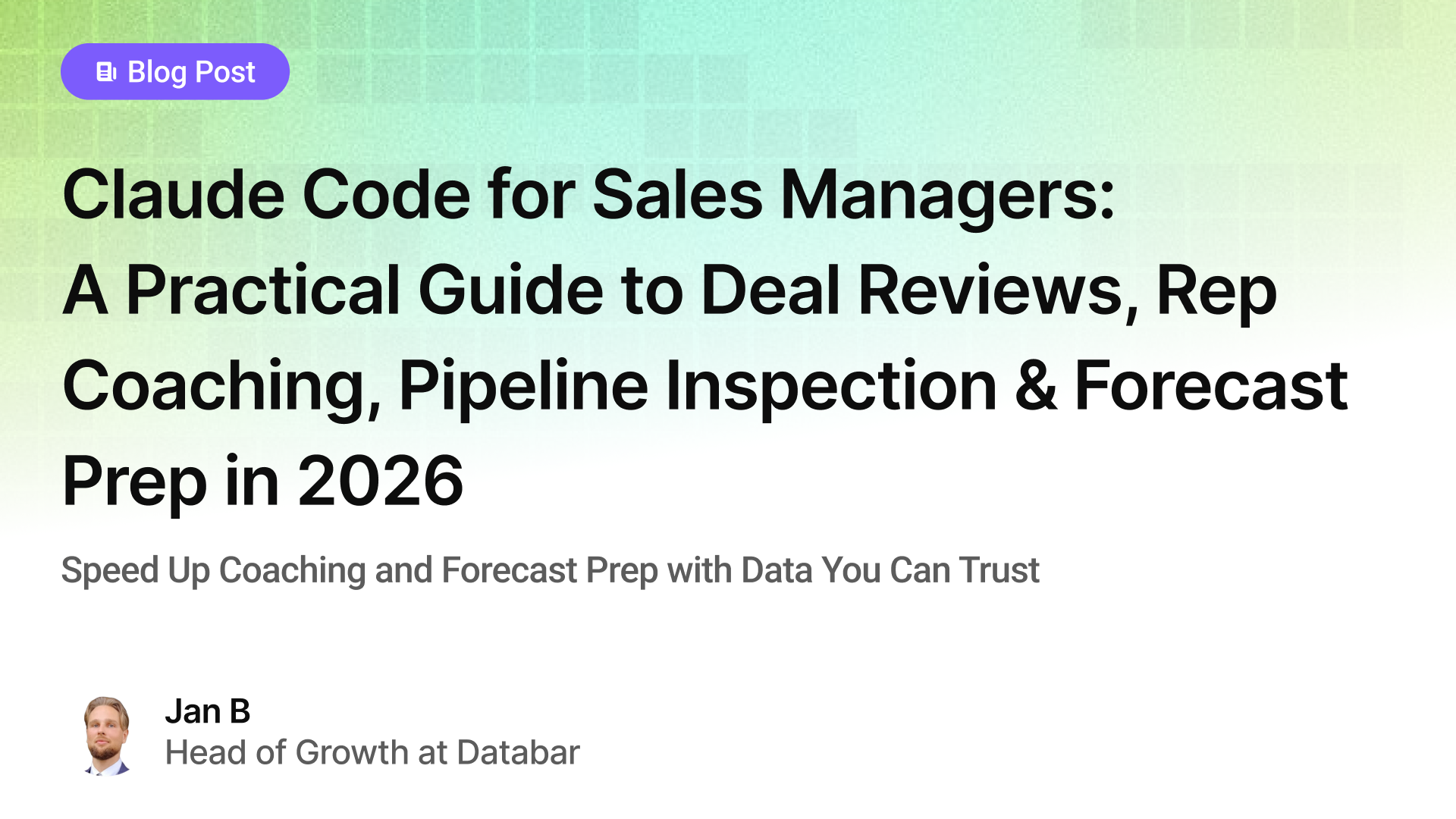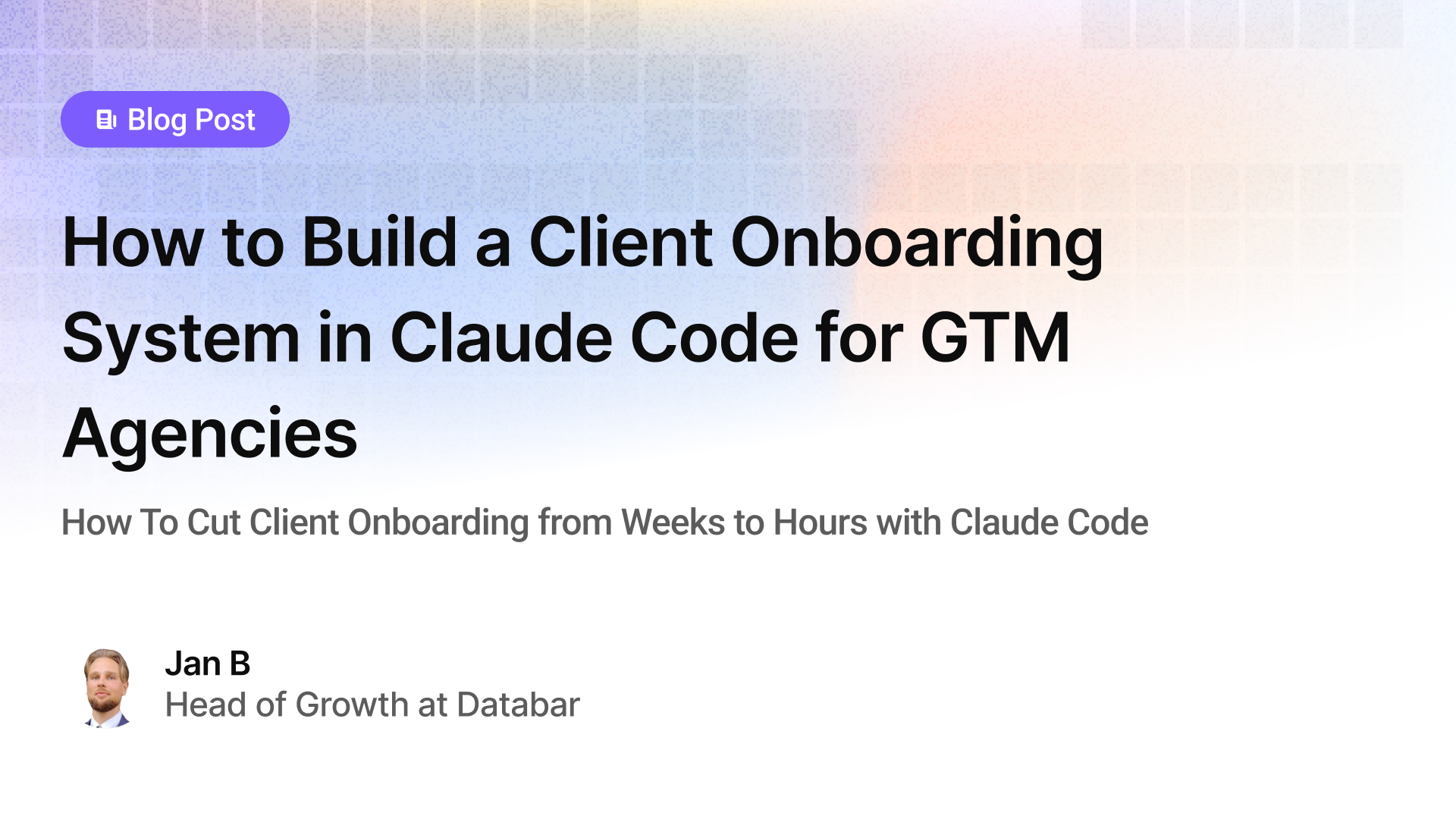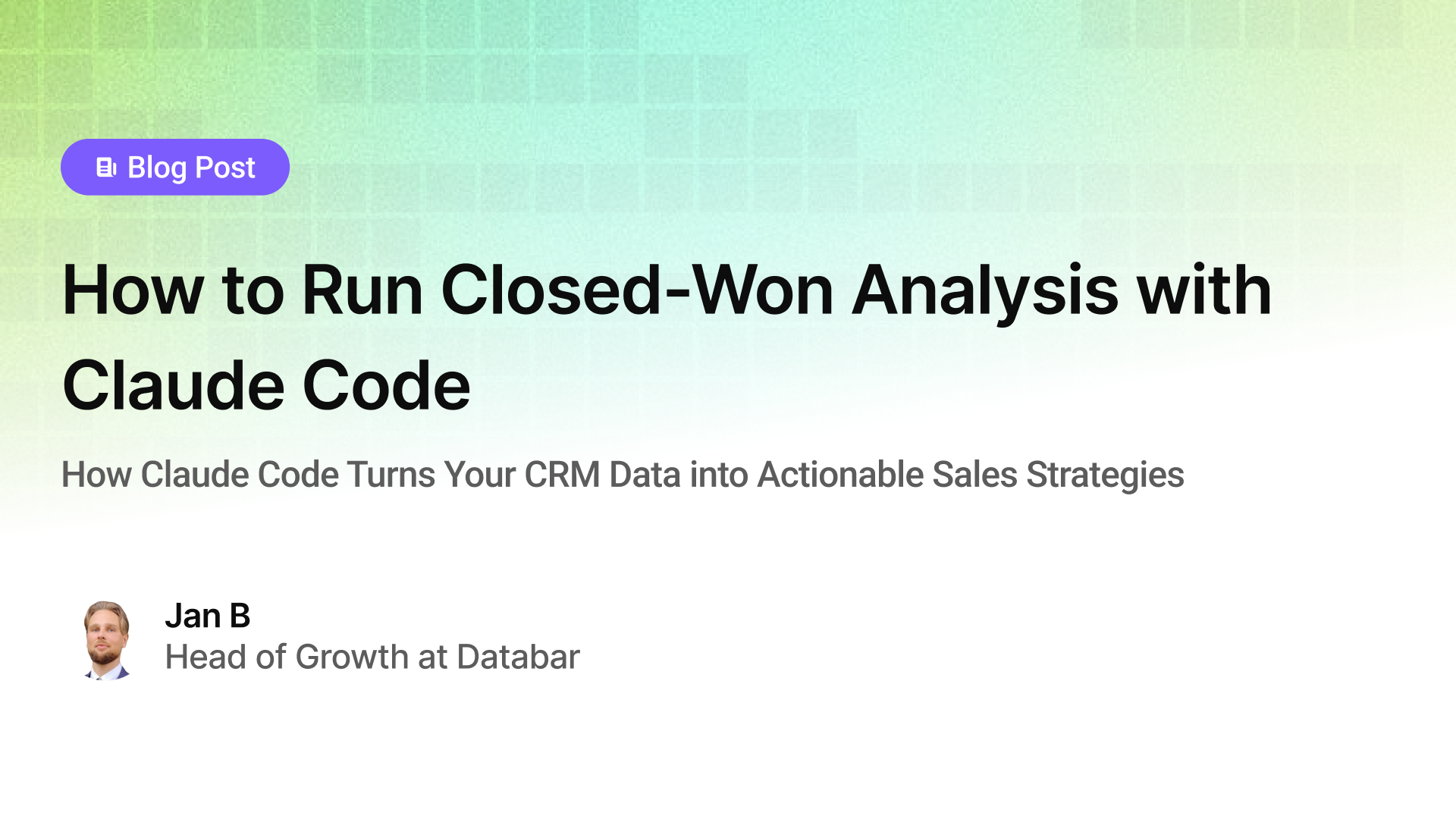How APIs Can Help You Optimize Your SEO Strategy
Leveraging APIs for Optimized SEO Performance
Blogby JanApril 07, 2025

APIs can help you optimize your SEO strategy by automating data collection, unifying your tech stack, and providing insights that manual research simply can't match. Despite these powerful capabilities, many SEO professionals still rely on scattered tools and laborious spreadsheet exports.
Marketing teams often limit their SEO potential by working with fragmented data. The result? Missed opportunities, wasted time on manual tasks, and decisions based on incomplete information.
This comprehensive guide explores exactly how APIs can help you optimize your SEO strategy by accessing richer data, automating tedious workflows, and gaining competitive advantages that drive real results.
What Are APIs and Why Do They Matter for SEO?
APIs (Application Programming Interfaces) function as connectors between different software applications, enabling them to communicate and exchange data seamlessly. For SEO professionals, they represent the gateway to deeper insights and powerful automation capabilities.
Consider APIs as digital intermediaries that request specific data from platforms like Google, SEO tools, or analytics services, then deliver that information where needed. This direct connection eliminates the need to manually download reports or copy data between tools, creating an automated flow of information.
The contrast between traditional SEO workflows and API-powered approaches is remarkable:
|
Traditional SEO Approach |
API-Powered SEO |
|
Manual data collection from multiple tools |
Automated data aggregation from diverse sources |
|
Hours spent compiling weekly/monthly reports |
Real-time dashboards updated automatically |
|
Limited sample sizes due to manual processing |
Comprehensive data analysis at scale |
|
Delayed reactions to ranking changes |
Instant alerts when metrics change |
|
Siloed tool data requiring manual combination |
Unified data from multiple platforms in one place |
Key SEO Challenges That APIs Solve
Today's SEO landscape presents several significant challenges that APIs can help solve effectively:
1. Data fragmentation across multiple tools
The average SEO professional uses 5-10 different tools for tasks like keyword research, rank tracking, competitive analysis, and content optimization. This creates disconnected data silos that make comprehensive analysis difficult.
APIs solve this by enabling data consolidation from multiple sources into a unified system. Rather than switching between Ahrefs, Semrush, Google Search Console, and Google Analytics, all this information can be aggregated in one place for comprehensive analysis.
Databar.ai's integrations with SpyFu and Crustdata, for example, allow users to combine competitive intelligence with performance data to identify opportunities competitors are missing.
2. Time-consuming manual reporting
Creating SEO reports typically involves exporting data from multiple tools, reformatting it in spreadsheets, and creating visualizations — a process that can consume days each month.
APIs eliminate this tedium by automating the entire reporting workflow. Data flows directly from source tools into reporting platforms, updating dashboards in real-time without manual intervention.
This automation not only saves valuable time but also enables more frequent reporting, providing faster insights into what's working and what needs adjustment.
3. Limited access to comprehensive data
Many SEO tools restrict the amount of data available for export or analysis, forcing users to work with samples rather than complete datasets.
APIs provide deeper access to underlying data, often allowing for more comprehensive information than what's available through user interfaces. This means analyzing larger keyword sets, more comprehensive backlink profiles, and historical data that might otherwise be inaccessible.
Access to the Google Ads Transparency API through Databar.ai, for instance, reveals how competitors have shifted their paid strategy over time, informing organic targeting priorities.
4. Delayed reactions to market changes
In SEO, timing is often critical. Algorithm updates, competitor moves, or sudden ranking drops require quick responses, but manual monitoring processes can delay awareness of these events.
APIs enable real-time monitoring by constantly checking for changes and triggering alerts when significant shifts occur. Whether it's a ranking drop, a competitor's new content strategy, or an algorithm update affecting your niche, API-powered systems can provide immediate notifications.
5. Inability to scale SEO efforts
As websites grow, manually tracking thousands of keywords or pages becomes increasingly impractical.
APIs make scaling possible by automating processes that would be impossible to maintain manually. Whether managing an enterprise site with millions of pages or expanding into new markets with localized content, API-powered systems grow with your needs without requiring proportional increases in time investment.
Essential APIs for Optimizing Your SEO Strategy
Several key API categories can dramatically improve SEO operations:
Search Engine APIs
Google's APIs provide direct access to critical data about how search engines see and rank content:
- Google Search Console API: Access comprehensive data about site performance in search, including queries, clicks, impressions, and average positions. Segment by country, device, page type, and date ranges far more flexibly than the standard interface allows.
- Google Analytics API: Pull detailed user behavior data to understand how visitors interact with your site after arriving from search. This helps identify which pages need optimization for engagement metrics like bounce rate and time on page.
- Google PageSpeed Insights API: Automate performance monitoring across your entire site, tracking Core Web Vitals and other speed metrics that influence rankings.
SEO Tool APIs
Major SEO platforms offer robust APIs that provide deeper access to their data:
- SpyFu API: Through Databar.ai's integration, access comprehensive competitive intelligence, including competitors' most profitable keywords, ad copy history, and organic ranking changes over time.
- Crustdata API: Pull detailed SERP feature analysis to identify opportunities for featured snippets, knowledge panels, and other enhanced results that can dramatically increase visibility.
- Ahrefs/Semrush APIs: Access backlink data, keyword difficulty scores, and competitive metrics at scale, allowing for more comprehensive analysis than manual exports would permit.
Content Optimization APIs
These APIs help create and optimize content that ranks:
- Natural Language Processing (NLP) APIs: Analyze content semantics to ensure topical relevance and comprehensive coverage of subjects important to search engines.
- Content Performance APIs: Track how specific content elements influence rankings, conversions, and engagement metrics.
- AI Writing Assistant APIs: Generate SEO-optimized content outlines, meta descriptions, and title tag variations based on top-performing content in your niche.
How to Implement APIs in Your SEO Workflow
Integrating APIs into your SEO strategy doesn't have to be technically challenging. Here's a practical approach:
1. Identify your biggest data bottlenecks
Begin by analyzing where teams spend the most time on manual data tasks. Common bottlenecks include:
- Weekly rank tracking reports that require exports from multiple tools
- Competitive analysis that involves manually checking multiple competitors' sites
- Content audits that require compiling data from analytics, search console, and content tools
Once these pain points are identified, prioritize them based on potential time savings and strategic impact.
2. Choose the right integration approach
Several options exist for implementing API connections:
- No-code platforms like Databar.ai that handle the technical aspects of API integration
- Mid-level solutions like Zapier or Make that offer pre-built API connections with basic customization
- Custom development for highly specialized needs that require tailored solutions
For most SEO teams, starting with a no-code platform like Databar.ai provides the fastest path to value. These platforms handle authentication, data formatting, and storage, allowing teams to focus on using the insights rather than managing technical infrastructure.
3. Start with a focused use case
Rather than rebuilding an entire SEO workflow at once, begin with a single high-impact use case. Good starting points include:
- Automated rank tracking dashboard that pulls data from Google Search Console and your preferred rank tracking tool
- Competitive intelligence system that monitors competitors' keyword movements and content strategies
- Technical SEO monitoring that alerts you to critical issues like crawl errors, page speed problems, or mobile usability issues
Focusing on a specific use case demonstrates value quickly and builds momentum for broader implementation.
4. Build automated data pipelines
Once initial API connections are established, create automated workflows that:
- Regularly fetch fresh data at appropriate intervals
- Clean and standardize the information
- Combine related data from different sources
- Generate alerts for significant changes
- Update dashboards and reports automatically
With Databar.ai, these data pipelines can be created without writing code, using a visual workflow builder to define how data should flow between systems.
5. Extend and refine your API ecosystem
After becoming comfortable with initial API implementations, gradually expand to additional use cases and data sources. Common expansions include:
- Adding more competitors to your monitoring system
- Incorporating additional metrics and dimensions
- Creating more sophisticated alerts and triggers
- Developing custom reports for different stakeholders
Each addition should solve a specific problem or create a particular advantage rather than integrating APIs simply because they're available.
Practical Tips for Getting Started with SEO APIs
For those new to working with APIs for SEO, these tips will help implement them successfully:
Start with data you already trust
Begin by connecting APIs for tools you already use and understand. This makes it easier to validate that your API connections are working correctly since you'll be familiar with what the data should look like.
Document your data needs before implementation
Create a clear specification of exactly what data you need, how often it should be updated, and how it will be used. This prevents scope creep and ensures your API implementation addresses your actual requirements.
Consider data volume and rate limits
Most APIs have restrictions on how many requests you can make within a specific timeframe. Plan your data refresh schedules accordingly to avoid hitting these limits. For high-volume needs, consider platforms like Databar.ai that handle rate limiting and data caching for you.
Prioritize data security
When connecting to APIs, you'll typically need to use authentication keys that grant access to your accounts. Ensure these credentials are stored securely and that data transfers comply with your organization's security policies.
Plan for API changes
APIs evolve over time, with providers adding, modifying, or deprecating features. Build some flexibility into your systems and stay informed about announcements from your API providers to avoid disruptions.
The Future of APIs in SEO
As search engines and SEO tools continue to evolve, APIs will play an increasingly central role in successful strategies:
AI-powered analysis and recommendations
The next generation of SEO APIs will incorporate advanced AI to not just provide data but offer specific recommendations based on that information. These systems will analyze patterns across multiple data sources to identify optimization opportunities that might not be obvious from looking at individual metrics.
Predictive SEO capabilities
By combining historical performance data with current trends, API-powered systems will increasingly offer predictive capabilities—forecasting potential ranking changes before they happen and suggesting preemptive optimizations.
Deeper integration with business outcomes
Future API ecosystems will more tightly integrate SEO data with business performance metrics, allowing for more sophisticated ROI analysis and budget allocation based on projected search impact.
Automated content optimization
As natural language processing capabilities advance, APIs will enable more sophisticated automated content optimization—suggesting specific changes to improve relevance, readability, and topical coverage based on what's working in your niche.
Conclusion: APIs Are the Future of Competitive SEO
In today's data-driven SEO landscape, APIs have become essential tools for teams that want to outperform their competition. By automating data collection, unifying disparate tools, and enabling analysis at scale, they transform how SEO professionals work and the results they can achieve.
The organizations seeing the greatest success don't view APIs as merely technical tools but as strategic assets that provide competitive advantages through better information and more efficient processes.
With platforms like Databar.ai making API integration accessible without requiring technical expertise, there's no reason to continue struggling with manual data processes and disconnected tools.
Start by identifying one high-impact area where APIs could improve your current workflow, whether that's automating rank tracking, enhancing competitive analysis, or scaling your content strategy. Begin there, measure the results, and gradually expand your API ecosystem as you experience the benefits.
Your competitors are likely already leveraging APIs to optimize their SEO strategy. The question isn't whether you should join them, but how quickly you can implement these powerful tools to level the playing field—or better yet, gain your own competitive advantage.
Ready to transform your SEO strategy with the power of APIs? Explore how Databar.ai's integrations with SpyFu, Crustdata, Google Ads Transparency API, and dozens of other data sources can give you the insights you need to dominate search results.
Related articles

Claude Code for RevOps: How Revenue Operations Teams Are Using AI Agents to Fix CRM Data, Automate Pipeline Ops & Build Systems
Using AI Agents to Fix CRM Data and Streamline Revenue Operations for Scalable Growth
by Jan, February 24, 2026

Claude Code for Sales Managers: A Practical Guide to Deal Reviews, Rep Coaching, Pipeline Inspection, and Forecast Prep in 2026
Speed Up Coaching and Forecast Prep with Data You Can Trust
by Jan, February 23, 2026

How to Build a Client Onboarding System in Claude Code for GTM Agencies
How To Cut Client Onboarding from Weeks to Hours with Claude Code
by Jan, February 22, 2026

How to Run Closed-Won Analysis with Claude Code
How Claude Code Turns Your CRM Data into Actionable Sales Strategies
by Jan, February 21, 2026